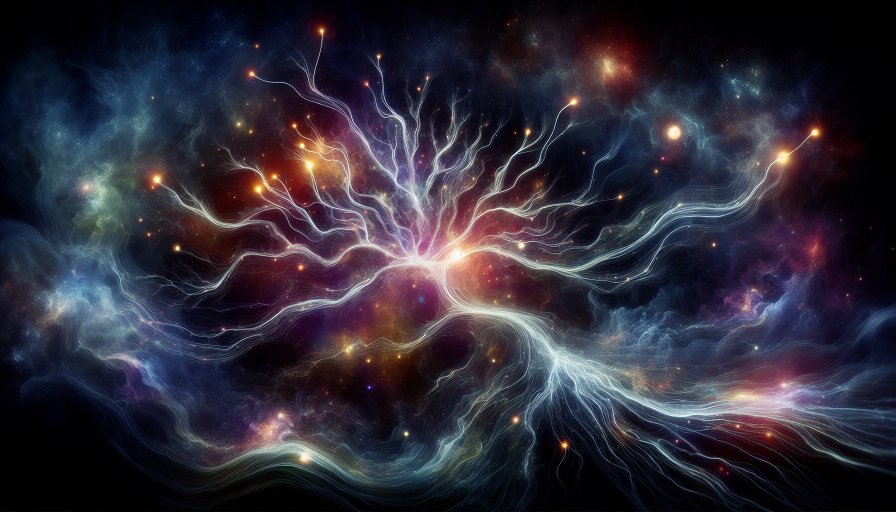
You know the feeling: You were on fire. The ideas came fast and sharp, your vision was clear, the work practically made itself. And then… nothing. Like the tide suddenly pulled out, your momentum disappears, leaving you foggy, irritable, and oddly tired. Welcome to the creativity hangover.
It’s a common but rarely discussed side effect of doing great creative work. Whether you just finished a novel chapter, a business proposal, a coding marathon, or an all-night brainstorming spree, that post-creative crash can leave you wondering, “Was that the last good idea I’ll ever have?”
Here’s the good news: it’s normal. In fact, it’s a sign that your brain just did something extraordinary. But like any system pushed to its limits, it now needs time—and strategy—to recover.
Contents
Why Creative Highs Come with a Crash
Creativity, especially in large bursts, draws on several different cognitive systems at once. You’re visualizing, problem-solving, emotionally investing, and often juggling doubt and excitement in the same breath. This kind of whole-brain activity is exhilarating—but it’s also exhausting.
Neurologically, a creative sprint spikes dopamine and engages the prefrontal cortex, limbic system, and even parts of the brain tied to spatial reasoning and memory. You’re basically hosting a full-house brain party. But once the rush ends, neurotransmitter levels drop, and mental fatigue sets in.
What you’re feeling isn’t failure—it’s cognitive depletion. Think of it like muscle fatigue after a strong workout. The work was meaningful, but now the system needs repair.
The Emotional Fallout: Anxiety, Emptiness, and Self-Doubt
Beyond the mental exhaustion, many people report feeling emotionally scrambled after completing a major creative push. There’s a peculiar emptiness that follows a burst of productivity. Part of this is the brain recalibrating—but another part is psychological.
When we create, we invest not just time but identity. Finishing a project can temporarily unmoor us. If your sense of purpose was wrapped up in the act of creation, you might feel aimless afterward. And if your self-worth is tied to performance, you might worry that you’ll never be “that good” again.
These feelings are tough—but they’re also predictable. And predictability means we can plan for them.
How to Recover and Reignite
Rather than pushing through burnout or waiting passively for the spark to return, try the following strategies to reset both your energy and your mindset:
- Step away deliberately: Don’t just stop working—change environments. Go for a walk, visit a museum, or clean a closet. Let your mind switch gears physically and mentally.
- Consume beauty, not input: Avoid information overload. Instead, seek out art, music, or nature—stimuli that soothe and restore rather than demand attention.
- Do “mindless” tasks: Organizing, gardening, or cooking can give the brain gentle structure without pressure to perform.
- Connect without performing: Spend time with people who don’t need you to be clever, useful, or productive. It’s amazing what safety does for recovery.
The key is not to force inspiration, but to create the mental conditions that allow it to return organically. Remember: rest isn’t an interruption of creativity. It’s part of the cycle.
Brain Supplements: Helping the Brain Bounce Back
During post-creative crashes, the brain’s executive functions—focus, decision-making, emotional regulation—can feel sluggish. This is where targeted brain supplements, or nootropics, may offer support. Certain nootropics are designed to promote mental resilience and recovery, which can be particularly helpful after high-output sessions.
Compounds like ashwagandha, L-theanine, or phosphatidylserine can help regulate cortisol levels and promote calm focus. Others, such as CDP-choline and uridine monophosphate, support neurotransmitter synthesis and cognitive function—filling in the gaps when mental energy feels drained. When paired with hydration, good sleep, and balanced nutrition, these supplements can help your brain transition more smoothly from burnout back to balance.
Of course, no supplement replaces the need for rest—but when you’re rebuilding your mental scaffolding, a little extra reinforcement can go a long way.
Creative Momentum vs. Creative Sustainability
There’s a temptation to ride creative momentum as long as it lasts. But long-term creative health depends on sustainability, not sprints. The goal isn’t just to make something brilliant once—it’s to build a life where brilliance has room to show up regularly.
This means embracing your rhythms. Learn when your creative energy is highest, and respect the troughs that follow. Don’t panic during low tides—they’re not creative death; they’re creative digestion.
Try structuring your work into cycles: periods of output followed by active recovery. Over time, you’ll start to trust that inspiration returns, especially when you don’t smother it with panic or pressure.
Honoring the Crash
The creativity hangover is not a sign that something’s wrong. It’s a sign that something happened. Something big, bold, brave. You reached into yourself and pulled out something new. Of course you’re tired. Of course you need to recover.
The next time you hit that wall after a burst of brilliance, don’t ask, “What’s wrong with me?” Instead, ask, “What do I need to restore what’s right with me?” Then give your brain what it needs: time, beauty, space, maybe a little support from the right nutrients—and above all, kindness.
Great ideas take energy. But so does the space between them. Trust that the lull isn’t the end—it’s just the exhale before the next great inhale.

